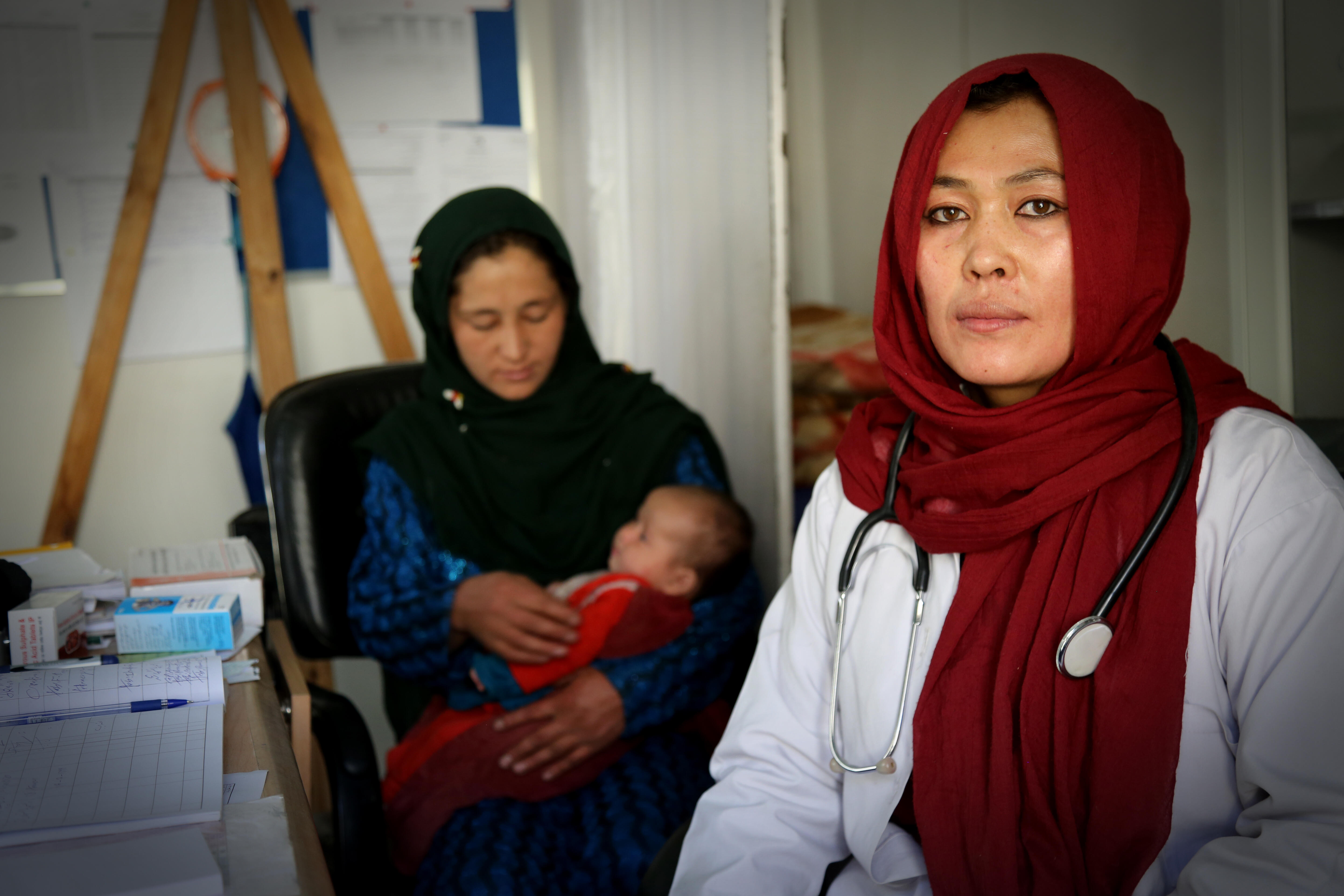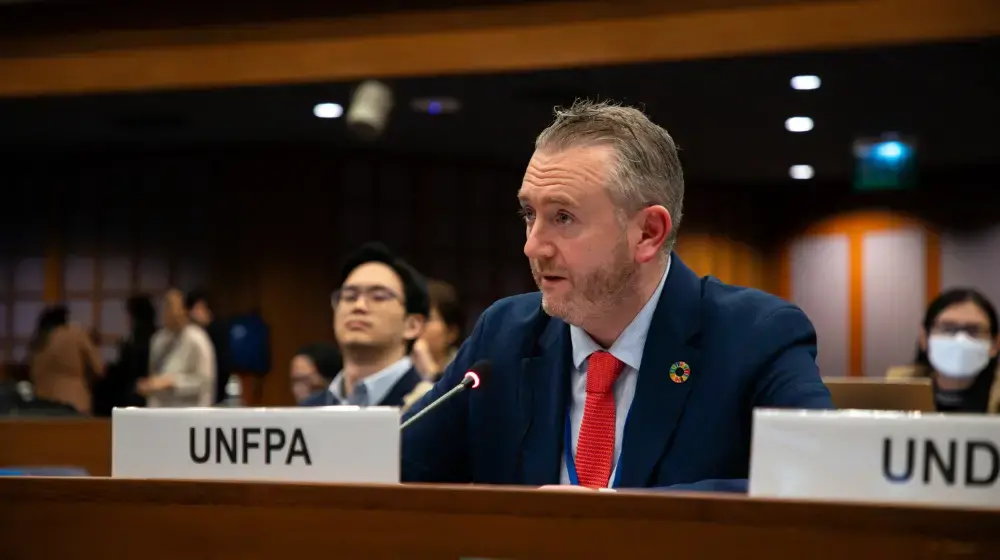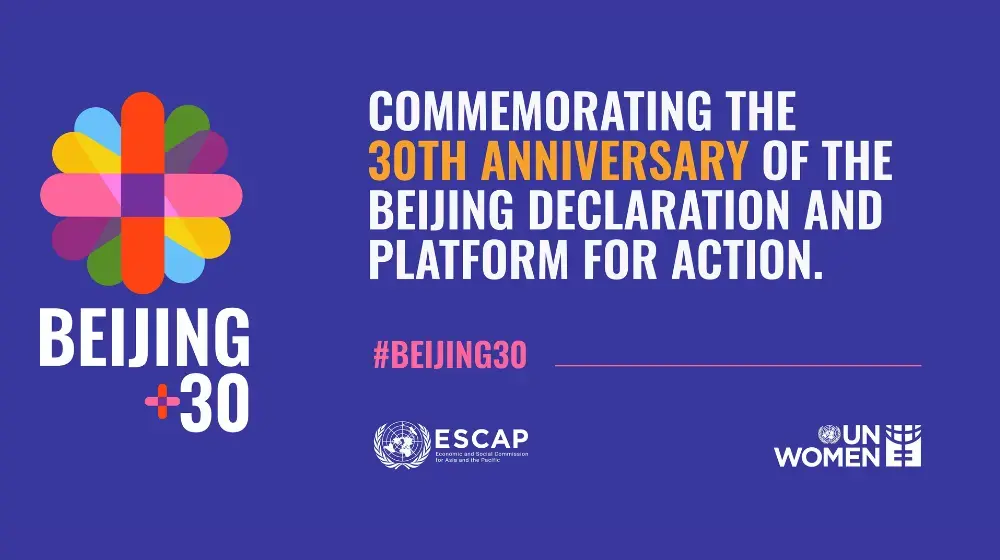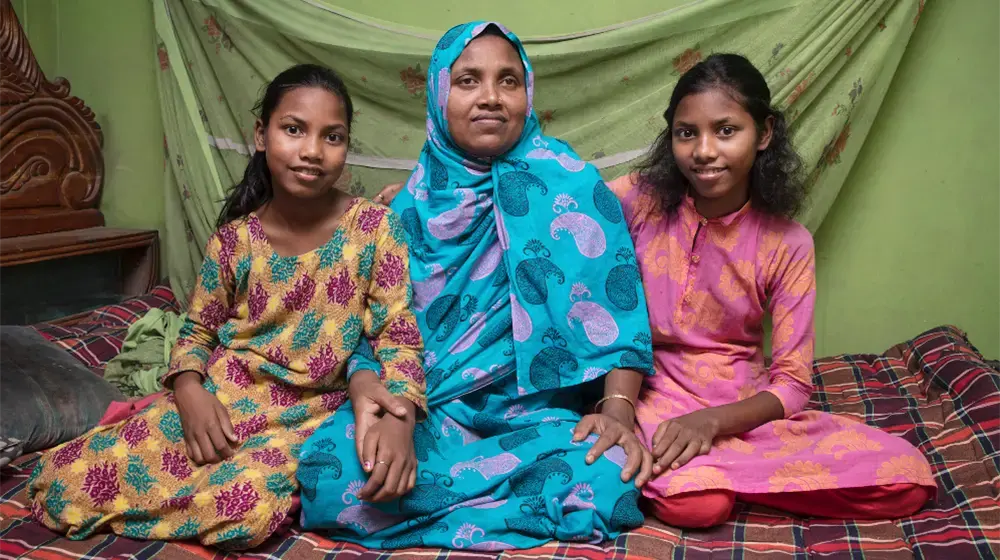BANGKOK, 12 November 2020 – The UNFPA Asia-Pacific Regional Office is relaunching Humans of ICPD, a compelling online initiative that showcases inspiring personal stories of individuals who work to achieve zero maternal deaths, zero unmet need for family planning, and zero gender-based violence and harmful practices against women and girls - transformative results all the more crucial as the region, and the world, seek to emerge from the devastation wrought by the COVID-19 pandemic.
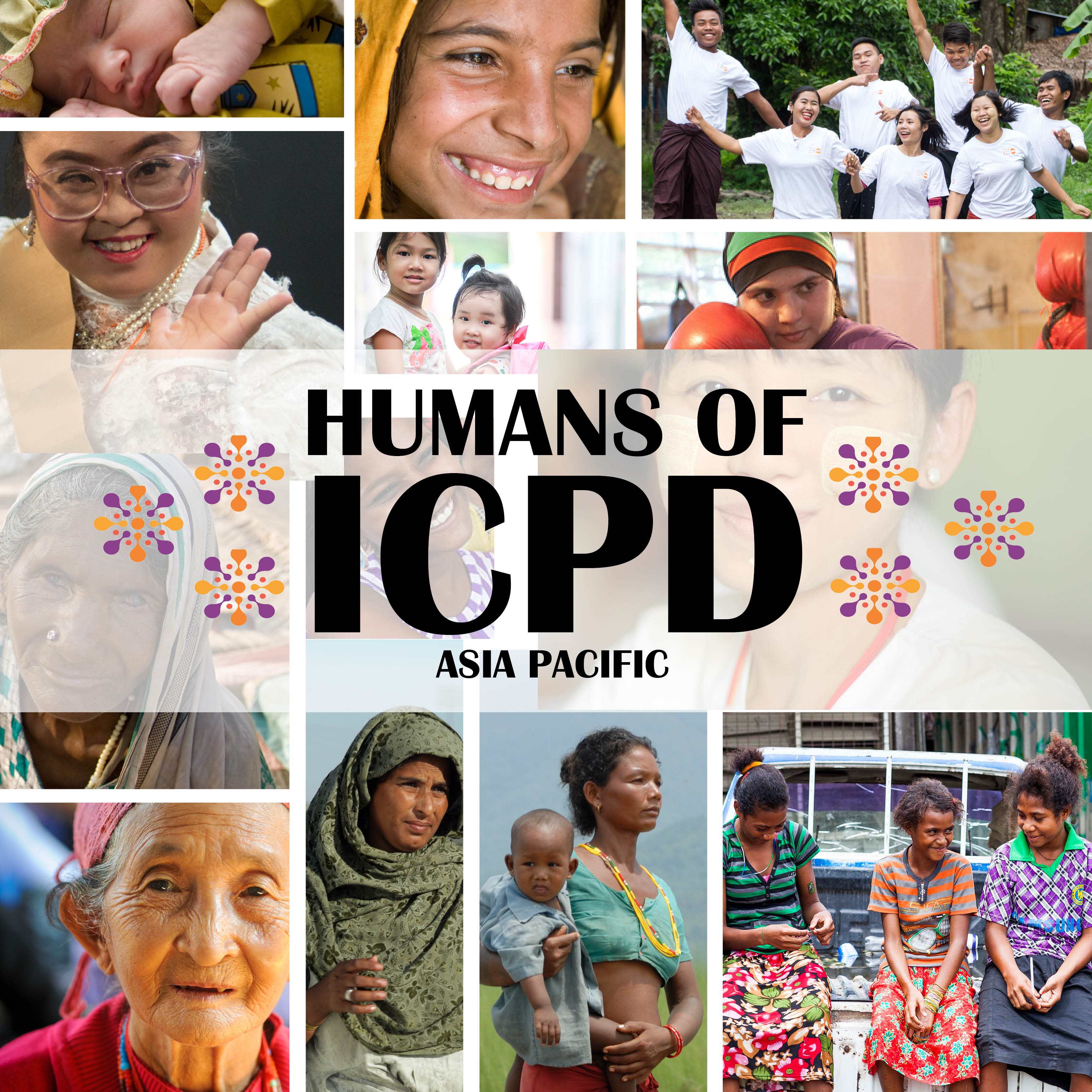
Humans of ICPD was initially unveiled on Facebook and Instagram a year ago this week, as the United Nations Population Fund (UNFPA) and partners convened the Nairobi Summit to commemorate the 25th anniversary of the International Conference on Population and Development (ICPD) in Cairo.
“The ICPD Programme of Action was groundbreaking,” recalls Bjorn Andersson, UNFPA Asia-Pacific Regional Director who attended the conference in Cairo. “We had 179 countries agreeing, for the very first time, that individual choices and human rights must be at the heart of sustainable development, with a special focus on sexual and reproductive health and rights – and for women and girls in particular – underpinned by gender equality and human rights.”
Over a quarter-century, the implementation of the ICPD Programme of Action has encouraged countries to invest significantly in rights-based programmes and services aimed at ensuring safe pregnancy and childbirth, facilitating access to contraceptives and other family planning supplies and services. The global action plan also helps put the focus on ending violence against women and practices such as child marriage, female genital mutilation and gender-biased sex selection.
In a region that is ageing fast, the ICPD Programme of Action advocates for the rights of older persons as well, calling for a life-cycle approach to population ageing that begins with establishing a strong foundation from pregnancy through childbirth, childhood and adolescence, and on to adulthood.
“By putting rights and choices at the centre of socioeconomic development policies, we’re emphasising that every person counts,” explained Andersson. “Every story counts, whether it’s the stories of new mothers and the midwives who help deliver their babies. The stories of people who want to better plan their families, freely deciding if or when to have children or not, and how many. The stories of women and girls seeking lives free of gender-based violence and those helping tackle this lingering menace to rights and to peace. The stories of older persons insisting on their right to contribute their skills and talents for as long as they are able. In short, we are all Humans of ICPD, and our initiative seeks to establish and strengthen that common thread in this diverse region, using the power of social media to connect, share and celebrate the movement.”
UNFPA Asia-Pacific encourages everyone to share their stories with Humans of ICPD using the criteria listed at the Facebook page, including:
- A story with quotes and a high-resolution portrait image of the person should be submitted to humansoficpd@gmail.com
- UNFPA Asia-Pacific may edit the story to ensure it suits the Humans of ICPD content formats on Facebook and Instagram (the story may appear on one or both of the platforms, at UNFPA Asia-Pacific’s discretion)
- UNFPA Asia-Pacific will follow up via email on the submission with further queries to confirm the story and ascertain additional information as necessary
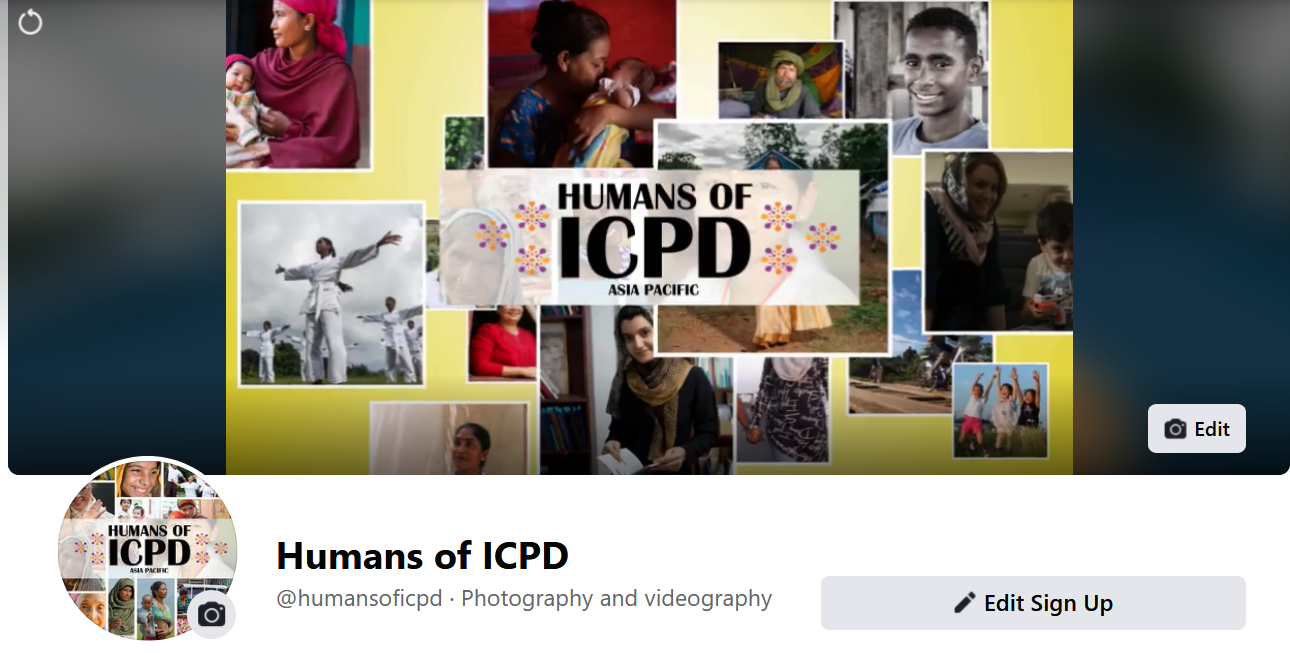
“Ultimately, the ICPD Programme of Action is a platform for each and every one of us,” concluded Andersson. “At the Nairobi Summit a year ago, Asia-Pacific governments renewed their commitment to accelerating ICPD. If we don’t make the ICPD a reality, we won’t achieve the Sustainable Development Goals whose finish line is barely a decade away. This is all the more urgent as Asia-Pacific and the world strive to build back better post-COVID-19. Stories shared with Humans of ICPD will contribute to this, building an online community over time in strengthening rights and choices, and putting a human face to all the work that’s being done to ensure no one is left behind.”
###
For more on Humans of ICPD, please contact Roy Wadia, UNFPA Asia-Pacific Communications: wadia@unfpa.org.
For more on the Nairobi Summit on ICPD25 and the ICPD Programme of Action, visit www.nairobi-summit.org, www.unfpa.org/ICPD and https://bit.ly/2Jx6ZRp.
UNFPA is the UN’s sexual and reproductive health agency, working in over 150 countries towards a world where every pregnancy is wanted, every childbirth is safe and every young person’s potential is fulfilled.
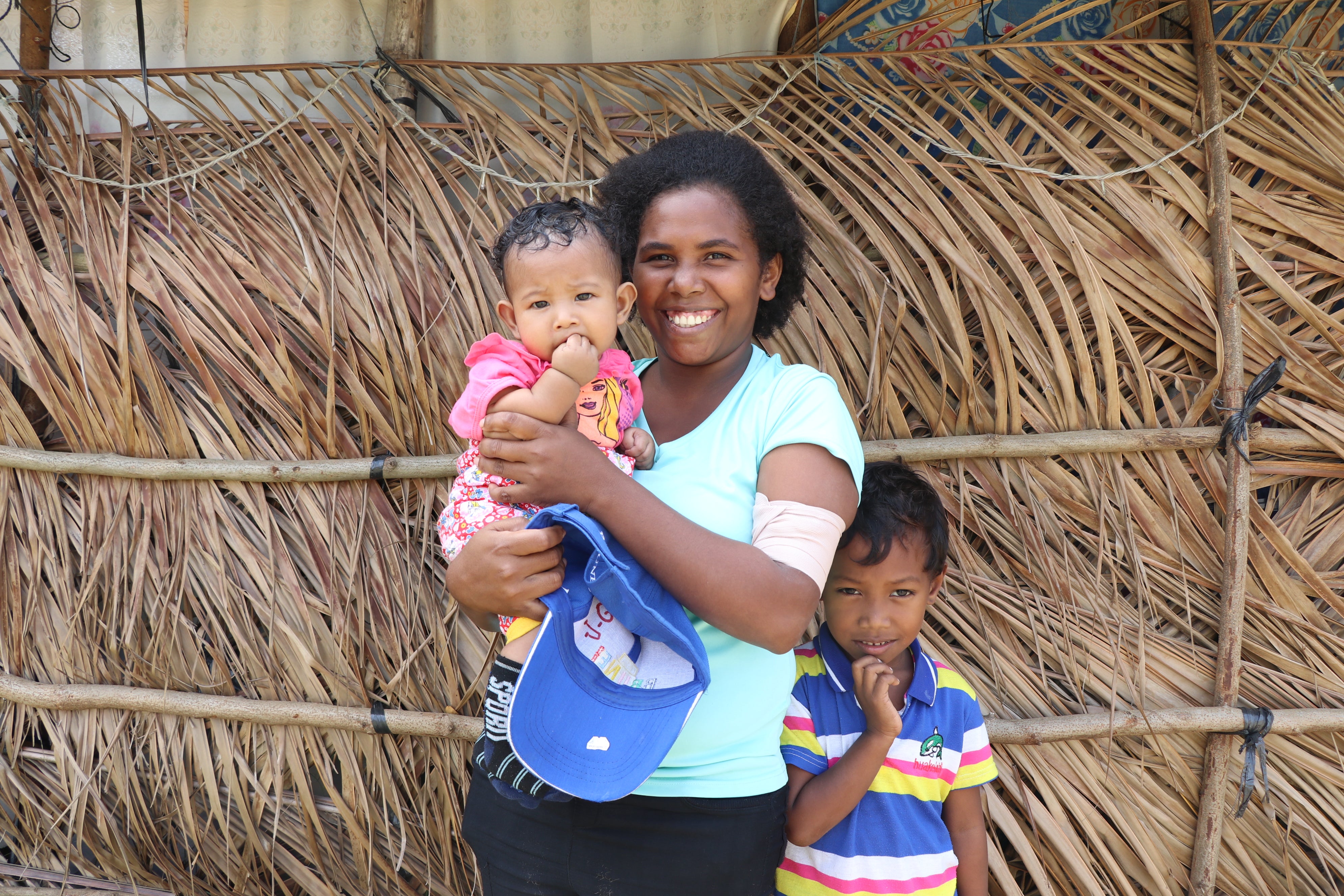
Hannah Gumaro of the Philippines chose a long-lasting contraceptive implant, to better help plan her family. Image: UNFPA Philippines/Mario Villamor.

